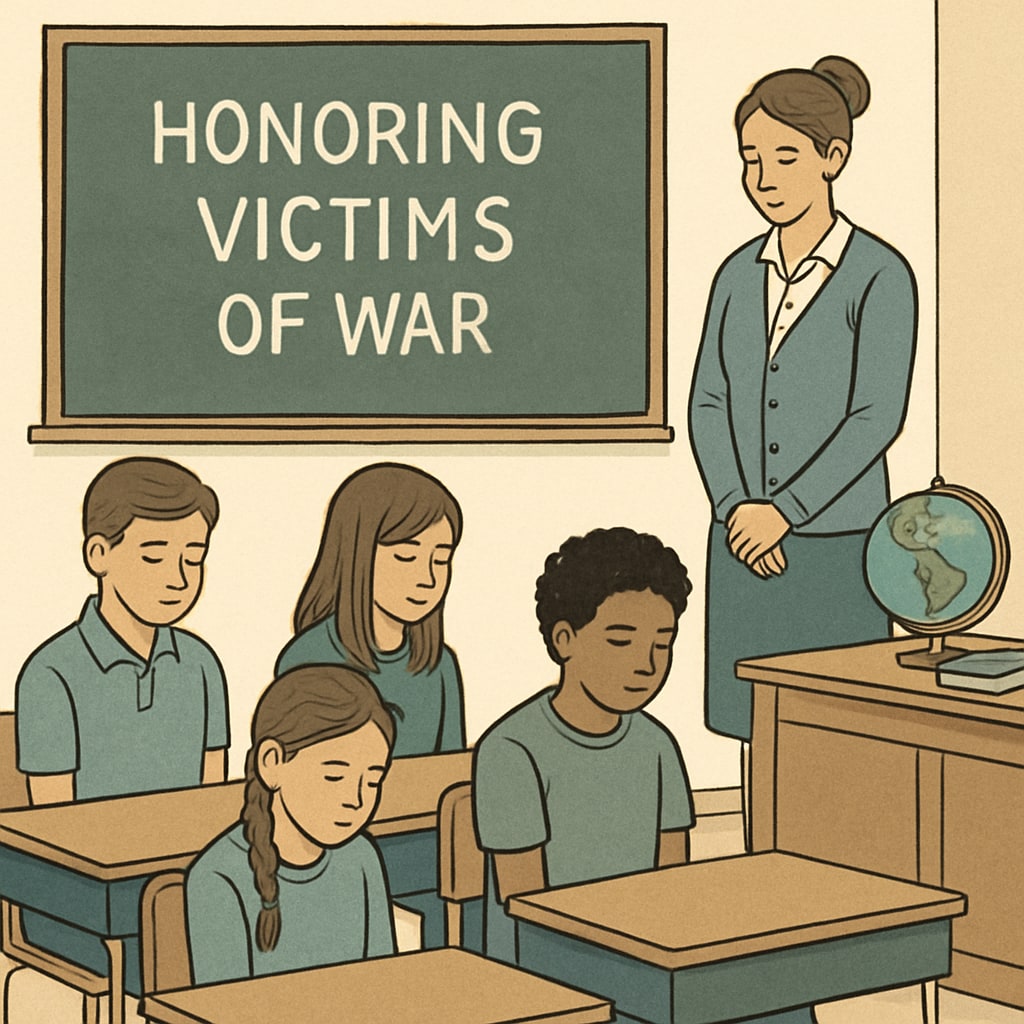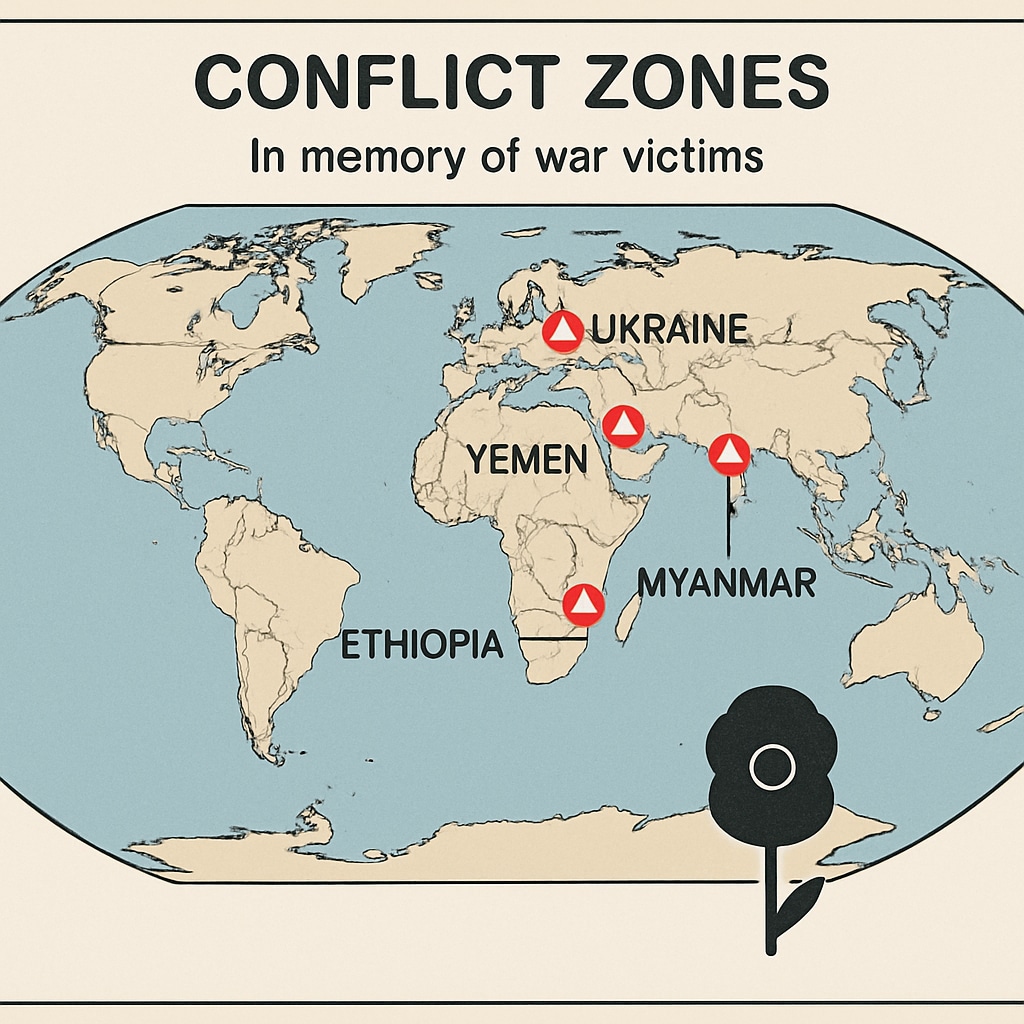The decision to generalize Gaza-specific mourning activities into a broader “global war victims remembrance” by schools has sparked significant debate. This approach, often framed as neutrality, raises concerns about political avoidance, educational responsibility, and the moral courage required to address issues such as genocide and the ongoing crisis in Gaza. At a time when education plays a pivotal role in shaping global consciousness, such decisions may risk diluting critical learning opportunities.

Why Gaza-Specific Remembrance Matters
Focusing on Gaza-specific mourning extends beyond a simple act of remembrance. It is an opportunity to educate students about the humanitarian crisis, the historical context, and the implications of global conflicts. By avoiding explicit mention of Gaza, schools risk erasing the identities and stories of those most affected, undermining the purpose of such commemorations.
For example, the Gaza conflict is not only a regional issue but also a reflection of broader systemic challenges, including human rights violations and geopolitical complexities. Addressing these topics within the classroom provides students with a nuanced understanding of global politics and the ethical dilemmas surrounding international intervention.
The Risks of Political Neutrality in Education
While schools may aim to appear neutral, this stance often results in political avoidance. By generalizing the mourning activity, institutions avoid taking a definitive position on controversial issues like the Gaza crisis. However, neutrality in such situations can unintentionally reinforce systemic injustices and fail to challenge the status quo.
In addition to the risks of avoidance, generalization undermines the goal of fostering critical thinking. Students are left to navigate complex issues without adequate guidance, potentially leading to misinformation or apathy. Educational institutions have a responsibility to create environments that encourage informed dialogue, even on polarizing topics.

Moral Courage: The Role of Educators
Educators hold a unique position in shaping the moral and ethical frameworks of future generations. Addressing the Gaza crisis directly demonstrates moral courage and a commitment to educational honesty. It challenges students to confront uncomfortable truths and develop empathy for those affected by conflict.
For example, teachers can facilitate discussions on the complexities of the Gaza crisis using age-appropriate resources, such as humanitarian reports and historical accounts. This approach not only informs but also empowers students to engage critically with global issues.
Moreover, educators can leverage this moment to emphasize the importance of advocacy and action. Encouraging students to participate in humanitarian initiatives or learn about organizations working to aid Gaza can transform mourning into meaningful engagement.
Balancing Sensitivity and Responsibility
Some argue that addressing specific conflicts like Gaza in schools may be divisive or inappropriate. However, the key lies in balancing sensitivity with educational responsibility. Schools can approach these topics with care, ensuring that discussions remain respectful and inclusive.
For instance, framing the conversation around universal values—such as human rights, justice, and the importance of peace—can create a shared foundation for dialogue. Additionally, incorporating perspectives from various stakeholders ensures a comprehensive understanding of the issue.
Ultimately, generalizing mourning activities risks missing an opportunity to educate students about the realities of war and its devastating impact on communities. By choosing to confront these issues directly, educators can foster an environment where moral courage and informed action thrive.
Readability guidance: The article uses short paragraphs and clear transitions to ensure ease of reading. It avoids jargon while incorporating academic concepts, ensuring accessibility for a broad audience.


